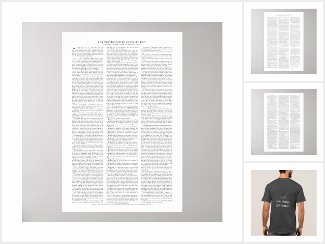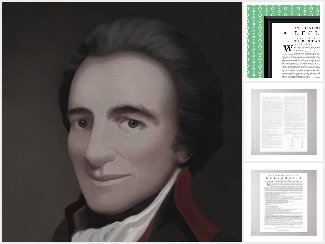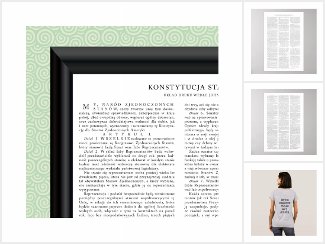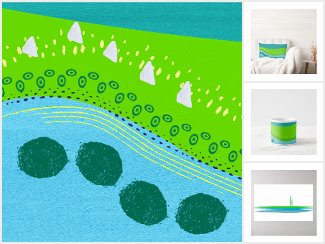Why think about travel in grammar? Let us reason on our language work until this place in the grammar course. We can use the Present Perfect: we reason how we have worked.

The Perfect Aspect is not the only way to look back on time. We can say we made our passage with the pods of time and traversed the river of time. We reckoned to be as on a map, we imagined ourselves as in an area, and we compared the Perfect Aspect to a way to a place.
By standard, we can talk the same about places we visited during a trip or journey. We use the Past Simple: our Past Simple forms are “made”, “traversed”, “reasoned”, “were”, “imagined”, and “compared”.

It is when we want to highlight an activity or faculty with regard to the PRESENT that we use the Present Perfect. Otherwise, we can just stay {ON} our cognitive maps.
Here, in subchapter 4.1, we could say we have connected the grammatical time and aspect, or, in words possibly more usual, that we have learned to use the fields of time with variables. Our grammatical time is the PRESENT, the same as our real time, inclusive of all chapter 4 so far.
In chapter 5, we might say we connected the grammatical time and aspect, or that we learned to use the fields. Chapter 4 may belong with the grammatical PAST: we were on it last week, another past time, or it is cognitively PAST to us.
If we want to sum up on Part 1 entire, we have quite some choice on the angle of view. For the language matter in chapter 4, we might say we connected, we have connected, as well as that we connect the Time and Aspect, or that we used, we have used, as well as that we use the fields with variables. The regard will depend on how relevant we think the matter is to our real-time PRESENT.
If someone is curious or wants to join the course, we might say — about the same language matter — we will have connected the grammatical time and aspect by chapter 5.
This is why the grammar course is a “travel in grammar”: we can speak about the same language matter, and the matter does not go change places in the course book or anywhere at all, whereas we flexibly express own regards.
Human logic is flexible by nature, and language altogether is not a predetermined reality. Beginning to read any book or to watch a movie, we may wonder what there is going to be; somewhere around the middle, we may look back to what has happened, and at the end we may think about things accomplished. With other matters in life as well, our grammar will vary, for thinking and talking about things done and those prospective. A flexible view to grammar is worthwhile.
ADVERTISEMENT
Spring Flowing Colors
Language does not require extraordinary talents. Regular intellectual ability is talent enough, and language workout can be pleasure, if we know that simply practice lets us learn to choose easily, between the Simple, Progressive, and Perfect as cognitive variables in real time. More, it can be good time and no stress.

We do not have to limit our view to language skill to a prospect for relaxing or moving about on land solely. Bald eagles happen to sojourn in woods deep as natural language grammars. Shall we follow the eagle to the Rockies?


Centuries already, people have used symbols to encourage thinking. The bald eagle symbolizes good language skills, in our grammar travel; it is a national symbol of the United States of America. The eagles can fly very high, feel welcome to ■Read about the American eagle.
If we want to be high fliers, we must learn independently to determine our extent and ground in language. Language may influence thinking, but there cannot be grammar or other rule good enough to regulate human thought. Our way with the Aspect cannot be as in the picture below: pre-set or divisive.

Feel welcome to the exercises (!)
■4.2. EXERCISES: LANGUAGE MAP PRACTICE.
■This text is also available in Polish.
ADVERTISEMENT
Book format in preparation.
In the first part of the language journey, feel welcome to consider a picture for
■ the grammatical Past, Present, and Future;
■ the Simple, Progressive, and Perfect;
■ infinitive, auxiliary, and head verb forms;
■ the Affirmative, Interrogative, Negative, and Negative Interrogative;
■ irregular verbs and vowel patterns: high and low, back and front.
Third edition, 2024.



The world may never have seen her original handwriting, if her skill was taken for supernatural. Feel welcome to Poems by Emily Dickinson prepared for print by Teresa Pelka: thematic stanzas, notes on the Greek and Latin inspiration, the correlative with Webster 1828, and the Aristotelian motif, Things perpetual — these are not in time, but in eternity.
■Free access, Internet Archive
Electronic format $2.99
■E-pub | NOOK Book | Kindle
Soft cover, 260 pages, $16.89
■Amazon | Barnes & Noble
Hard cover, 260 pages
■Barnes & Noble | Lulu
Internet Archive, the free text and image repository
■Feel welcome to use my free materials■
The posters are available to shop online as well.

Psycholinguistics
Linguistics
& Translation
Knowledge gains with good translation
■Public Domain
Translation. com
American English & Polish







